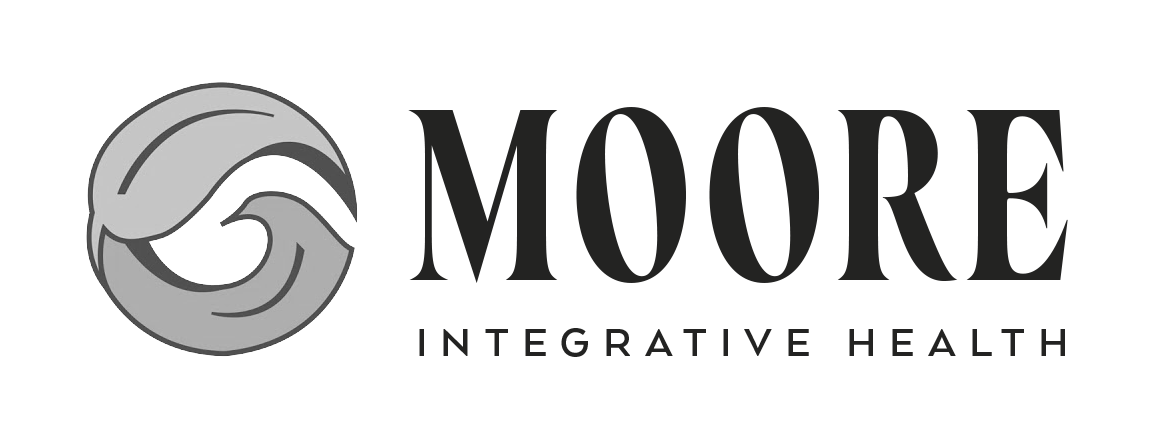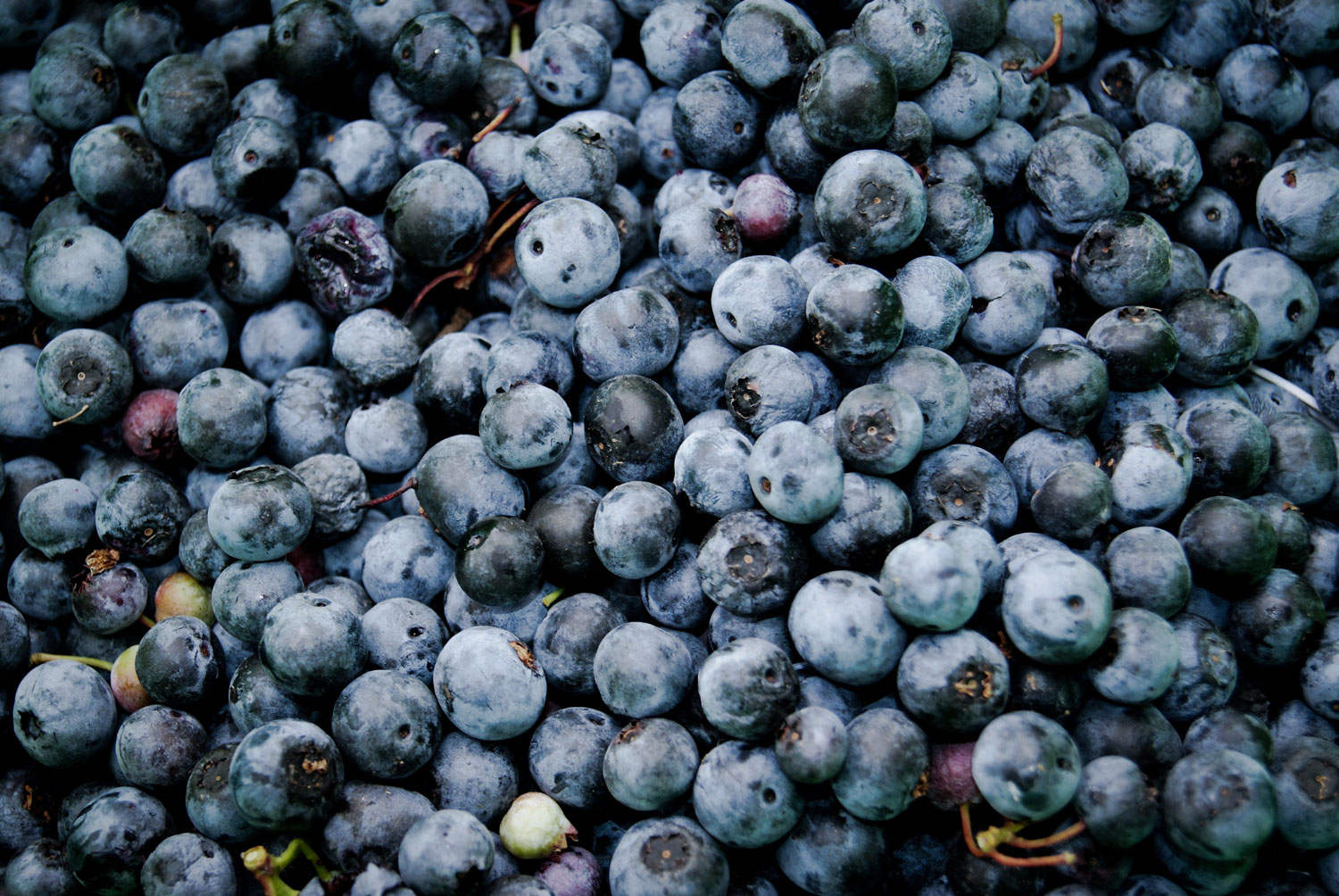Ten Best Foods for Mental Health and How to Prep them in Ten Minutes!
When it comes to rebalancing brain chemistry and supporting mental health through foods and herbs - there is no single right way to do it. As I’ve stated a million times over, everyone’s physiology is different and will come into play to a certain extent. With that said, I’ve selected ten of my go to foods for supporting mental health that everyone could benefit from incorporating into their diet on a daily basis. I’ll discuss why these ten foods are so nourishing for your brain, as well as how you can incorporate them into a quick ten minute meal. Let’s dive in!
1). Wild Caught Salmon AND/OR Wild Sardines
These fish are ridiculously rich in omega-3s to help lower inflammation, support cellular communication pathways by supporting the health of cell walls (huge implications for neurotransmitter communication pathways), and improve digestion. Wild caught is ideal as it is much more sustainable, the fish are lower in toxins, and their omega-3 content is much higher.
Easy Baked Salmon Recipe: Set the oven to 375. Place a 4oz cut of wild caught salmon in a baking dish and drizzle ghee or olive oil over top of the salmon. Squeeze a half a lemon over the top, sprinkle some salt & pepper, and then add a few thin slices of lemon on top. Dice up some fresh or dried rosemary and sprinkle some over the top. Bake for 15 minutes. For extra points, add a little minced garlic!
Wild Sardines are great diced up in a chopped salad!
2). Organic Pastured/Grass-Fed Bison, Beef, Lamb, Or Chicken
These meats are rich in B vitamins and the specific amino acids (I.e. Tryptophan) that support your brain’s synthesis of neurotransmitters. Animal protein is the richest source of bio-available tryptophan and B vitamins. But not all animal protein is created equal. Opt for pastured, humanely raised, organic, and local if possible.
Lamb burger:
1 pound ground lamb (or substitute with beef)
1⁄2 cup finely diced onion
1/4 cup chopped fresh parsley
2 tablespoons chopped fresh mint
1 teaspoon salt
1 teaspoon black pepper
1 teaspoon ground cumin
1 teaspoon ground allspice
1/2 teaspoon ground cinnamon
1/4 teaspoon cayenne pepper
Mix the lamb, onion, parsley, mint, salt, pepper, cumin, cinnamon, allspice, and cayenne in a bowl and mix (kneading with your hands is a good idea) to make sure that the mixture is well blended.
Cover and refrigerate if possible for up to one hour.
Meanwhile, make the taratour sauce: Whisk the tahini, water, garlic, lemon, and salt until smooth. Stir in the chives. Add more water if necessary, one tablespoon at a time, to thin the sauce to a desired consistency.
To cook the burgers, preheat a grill, a grill pan, or a cast iron skillet on medium high heat. Form the meat into 4 burgers
Cook for 3 to 5 minutes per side, until cooked through. Serve hot, with tahini taratour sauce drizzled on top.
3). Raw Egg Yolks
Raw egg yolks are rich sources of protein and choline to support brain and memory function. They support high performance activity and are most bioavailable when eaten raw. Incorporate them into smoothies, or whip up a couple eggs sunnyside up in the morning over a veggie hash. Try our Brain Booster Smoothie recipe in our resources section!
4). Olive Oil, Ghee, Coconut Oil/MCT Oil
These oils are GREAT sources of fat to support the brain. Considering that the brain is predominately made of fat, it makes sense that healthy fats are going to be very beneficial for ensuring the health of our brain cells. These fats are packed with antioxidants, antimicrobial properties, and butyric acid which is a source of energy for brain cells.
For those of you not familiar with ghee, ghee is clarified butter - meaning the milk solids, casein, lactose, and moisture have been removed and what is remaining is the beneficial fats and nutrients. Contrary to popular belief, ghee actually reduces the risk of heart disease. The saturated fats protect nerve and brain cells and can heal and maintain healthy digestion, which goes hand in hand with brain function. Packed with vitamins E, A, K and essential fatty acids, ghee should be a go to oil for supporting the brain.
Coconut oil and it’s derivative MCT Oil (medium chain triglycerides) are packed with antimicrobial properties that support a balanced microbiome and support the brain with a very rapid source of long lasting fuel. Both are also anti-inflammatory and great for brain injuries.
You can put a tablespoon of coconut oil/MCT Oil and ghee into a morning smoothie, olive oil used generously over a salad, or use all three for cooking! Either way, get em in daily! Fat is your friend!
5). Fermented Foods
This includes sauerkraut, kimchi, yogurt, kefir, kombucha, miso, etc. Fermented foods support a healthy microbiome (the city of bacteria living in our guts). They enhance the level of healthy bacteria thus improving intestinal health, and they promote an abundance of relaxing neurotransmitters in the brain (GABA). 1 TBSP of kimchi or sauerkraut goes great over a salad. You can enjoy the Cherry recipe under #10 with yogurt as well for some evening probiotics!
Coconut Miso Soup (Adapted from Meghan Telpner)
Ingredients
6 cups water
¼ cup fresh ginger, cut into match stick slices
4 carrots, sliced
½ red onion, chopped
½ cup broccoli, chopped into florets (use stems too)
½ cup red cabbage, shredded
2 tbsp lemon juice
¼ cup tamari
1 cup organic coconut milk
2 sheets of nori, cut into thin strips about 2 inches long
¼ cup dried or ½ cup fresh shiitake mushrooms
⅓ cup miso paste (Make sure its fermented! A natural food store or Whole Foods should have it)
Instructions
Place water, ginger, carrots, onion, broccoli and cabbage into pot, bring to a boil and let simmer for 5-10 minutes, until carrots are fork tender.
Remove from heat and add lemon juice, tamari and coconut milk.
Scoop out 1 cup of the broth and whisk with miso until miso paste has dissolved. Pour back into pot.
Keep warm on low heat, but do not allow to boil.
Serve garnished with nori and mushrooms!
6). Wild Frozen Blueberries
Rich in phytonutrients that protect our cells from damage, wild blueberries are a go to for lowering brain inflammation from sports injuries or other brain traumas. 1/2 cup of wild frozen blueberries goes great in our Brain Booster smoothie recipe under our resources page!
7). Pinto Beans
These are a great vegetarian source of protein as well as B vitamins to support a healthy mood. B Vitamins are essential in the creation of neurotransmitters in the brain. A deficiency of B Vitamins can manifest as mental health symptoms.
Pinto Bean Burrito Bowl Recipe
Burrito Bowl
1/2-1 Cup Canned Organic BPA Free Pinto Beans
Shredded Kale
Shredded red cabbage
Diced Carrots
Chopped, cooked chicken (omit if vegetarian)
Halved grape tomatoes
Crumbled cheese such as goat, feta
Chopped green onions
1 TBSP Sauerkraut or Kimchi
Dressing
Half of an avocado
1/4 cup plain Greek yogurt
1/2 cup water
1 cup fresh cilantro
1 clove garlic
1 green onion, chopped
1/2 teaspoon salt
A few squeezes of lime juice
hot sauce, to taste
8). Oats
A great food for reducing anxiety, oats are very relaxing when eaten in the evening.
Depends on the type of oats you are using here, I recommend either steel cut or certified gluten free quick cooking oats. Follow instructions on packaging for cooking the oats. You can add some almond milk or whole fat milk over top, or yogurt, and add some berries, walnuts, hemp/flax/chia seeds.
Try this oatmeal recipe:
1/2 cup cooked oats (unsweetened)
1 TBSP hemp seeds
1 TSP Chia seeds
1 TSP ground flax
Handful walnuts or sprouted pumpkin seeds
Blueberries/raspberries/bananas
If you have a sweet tooth, try adding a tiny bit of wild honey or maple syrup
9). Matcha
A wonderful natural source of L-Theanine and antioxidants, that support a relaxed mood as well as cellular health.
Matcha Smoothie:
1/2 cup almond milk or for bonus points pastured kefir, or coconut kefir
1/4 cup wild frozen blueberries
1 tsp matcha green tea powder
3 drops stevia liquid or 1 tsp raw honey
1 TBSP MCT oil
10). Tart Cherries
These little beauties are a natural source of melatonin to support a good night sleep. Best if eaten in the evening.
Cherry Dessert!
HANDFUL RAW SPROUTED WALNUTS
2 TBSP RAW, UNSULFURED COCONUT FLAKES
1 TBSP RAW CACAO NIBS
1/3 CUP COYO OR GT’S PLAIN COCONUR YOGURT
BONUS: Walnuts!
There’s a reason why walnuts look like a small brain. They have the highest content of omega-3 fatty acids of all the nuts that can support improved neurotransmitter communication pathways. After all, your brain is mostly made of fats, with DHA from omega-3s being one of the most vital. So get some healthy ones in! Throw them on oatmeal, eat them raw, mix them into granola.
References:
Abascal, K., & Yarnell, E. (2004). Nervine Herbs for Treating Anxiety. Alternative and Complementary Therapies, 10(6), 309–315. https://doi.org/10.1089/act.2004.10.309
Aslam, H., Green, J., Jacka, F. N., Collier, F., Berk, M., Pasco, J., & Dawson, S. L. (2018). Fermented foods, the gut and mental health: a mechanistic overview with implications for depression and anxiety. Nutritional Neuroscience, 1–13. https://doi.org/10.1080/1028415X.2018.1544332
Bjelland, I., Tell, G. S., Vollset, S. E., Konstantinova, S., & Ueland, P. M. (2009). Choline in anxiety and depression: the Hordaland Health Study. The American Journal of Clinical Nutrition, 90(4), 1056–1060. https://doi.org/10.3945/ajcn.2009.27493
Dietz, C., Dekker, M., & Piqueras-Fiszman, B. (2017). An intervention study on the effect of matcha tea, in drink and snack bar formats, on mood and cognitive performance. Food Research International, 99, 72–83. https://doi.org/10.1016/j.foodres.2017.05.002
Gómez-Pinilla, F. (2008). Brain foods: the effects of nutrients on brain function. Nature Reviews. Neuroscience, 9(7), 568–578. https://doi.org/10.1038/nrn2421
Howatson, G., Bell, P. G., Tallent, J., Middleton, B., McHugh, M. P., & Ellis, J. (2012). Effect of tart cherry juice (Prunus cerasus) on melatonin levels and enhanced sleep quality. European Journal of Nutrition, 51(8), 909–916. https://doi.org/10.1007/s00394-011-0263-7
Kennedy, D. O. (2016). B Vitamins and the Brain: Mechanisms, Dose and Efficacy—A Review. Nutrients, 8(2). https://doi.org/10.3390/nu8020068
Kiecolt-Glaser, J. K. (2010). Stress, Food, and Inflammation: Psychoneuroimmunology and Nutrition at the Cutting Edge. Psychosomatic Medicine, 72(4), 365–369. https://doi.org/10.1097/PSY.0b013e3181dbf489
Poulose, S. M., Miller, M. G., & Shukitt-Hale, B. (2014). Role of Walnuts in Maintaining Brain Health with Age. The Journal of Nutrition, 144(4), 561S-566S. https://doi.org/10.3945/jn.113.184838
Slemmer, J. E., Shacka, J. J., Sweeney, M. I., & Weber, J. T. (2008). Antioxidants and Free Radical Scavengers for the Treatment Of Stroke, Traumatic Brain Injury and Aging [Text]. https://doi.org/info:doi/10.2174/092986708783497337

